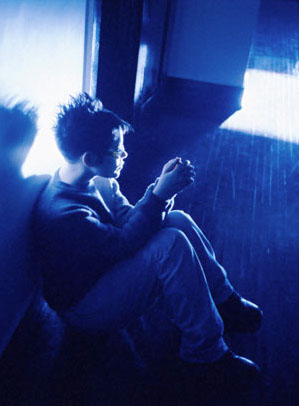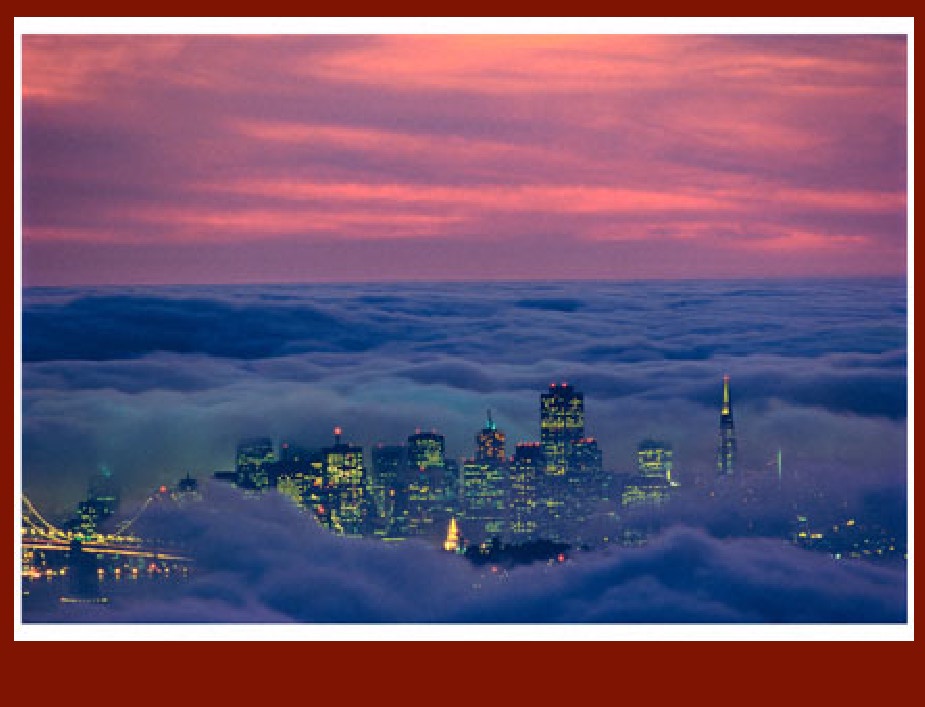|
|
|
|
EXCERPTS FROM CALIFORNIA BOOMER Random Stories From The Book, Changed Monthly
|
|

|
|

|
Staring Into the Charles STARING INTO THE CHARLES
The Second Life At any given time in America there are hundreds of thousands of children whose parents no longer want or see a need for their own children. These children live their first lives in a home setting, the mean streets of America is their Second Life. One morning before entering the Post Street skyscraper in San Francisco where I worked, there was a dark haired boy sitting in a doorway, knees to his chest. He was young looking, 15 or 16, wearing a baseball cap, well worn jacket, and dirty jeans. He sat in that same doorway every morning, rain or shine. A few times I saw people stop and give him change. It was the same, day after day. One morning I thought I'd try to help him. I walked right up to his doorway home. “Hey how's it going?” I asked, “Wha'd ya need mister?” I was taken back a bit. “Nothing,” I responded. I was feeling really uncomfortable. “You have a name?” I asked “Charles,” he said. “Where's your home?” I asked knowing he had none. “The park.” (Golden Gate Park, where many homeless youth sleep) “How long you been on the streets?” “About a month here,” he said curtly. “Have you tried getting a job?” I asked with middle-class concern. “I'm 16. What do ya think?” He shot back. “Where you from?” I keep popping questions. “Boston, almost next to the Charles River,” he smiled. I hitched out to L.A. and ended here.” He lit a cigarette and was looking pissed off. “You have any family?" Iasked. “My Dad lives in Boston. My mom left us. I got out. Bad news place.” He looked away taking a drag on his cigarette. He was getting angry. “What the fuck's your problem, you some kind of street preacher or som'thing?” he said with anger in his voice. I stepped back ready to leave. Then I said, “Come on I'll buy you breakfast.” I turned to walk away. I wasn't sure if he would come, but he did. Just like a lost puppy. Charles ordered enough food for two people, eggs, ham, hot cakes, milk, orange juice and a piece of pie. He ate with few pauses and no talking except he once looked up and said, “I'm hungry.” I sat in disbelief that he could put so much food into his small thin frame. Charles finished his food. He looked up at me with his dark eyes. “Thanks.” I paid the bill and gave him $10. I got up and said. “Stay cool, Charles.” I pulled out of the booth and walked out. He was still sitting there. I thought of my son and wondered if he were on the streets if there would be someone to feed him? The thought disturbed me. How could this sort of thing happen in America? I felt angry and guilty. Breakfast became a daily ritual with Charles. I would arrive at Charles’ doorway every morning. I’d feed him and then go to work. We would sit, eat, and talk at the same window. We both would look out at an ever crowding street; business people rushing to their cubicles in the glass and concrete skyscrapers. After a few breakfasts together Charles began to open up. He said he left home because his dad drank and beat him. Once he had to be taken to the hospital with a broken arm. “Dad got drunk and slammed me into a wall.” All of Charles' stories about home had in them, “dad got drunk and...” The cycles of alcohol and violence were weekly. Charles was about to make the step to the second life. Charles had a little money saved from odd jobs he did in the neighborhood. One Friday night he stole his dad's pay. “Dad would cash his check at the package store on Friday nights, buy a bottle, and then come home and get drunk.” Charles got over $300 dollars out of his dad's wallet. His dad finally passed out. Charles left and ran out of the house as fast as he could, duffel bag in hand, down the dark streets crying as he ran. He hopped a bus to New York City, then caught a westward train to Chicago. Once in Chicago he stayed a few days with a guy he met on the train. The man gave offered $60 for oral sex. Charles did it. He had now been introduced to street teen's economics 101. Homeless youth can't apply for loans nor can underage youth get welfare. When you’re underage and on the streets you sell your body, steal, and do whatever you need to do to stay alive. From Chicago Charles hitched or took a bus across the country; a zig-zag of booze, drugs, people bedrooms and bathrooms. He ended up in L.A. and didn't like it there so he moved on to San Francisco. By the time he got to San Francisco he was broke. He hustled tricks on Polk Street with a few people to make some money but hated hustling and stayed away from known pick-up spots. That's how he landed in the middle of San Francisco's financial district panhandling. He hated making money by having sex with strangers. I did research regarding homeless teens and found a shelter that had just opened for runaways in San Francisco. I talked to the director about Charles. The director had been a runaway himself. A meeting was set up and Charles after many long talks with me and finally the director of the shelter, decided he would go to talk. A few days later I saw Charles and he told me he was going back to Boston. “Can you believe it? All this bull shit and I'm go'in back?” With Charles’ permission, the shelter had contacted his father and arranged for Charles to return. There was an aunt he could stay with. “I hate that asshole aunt.” Charles shot at me. “I'd go back and see if you can work things out”, I said. “Maybe go back to school.” Charles was angry and hurt. I could see there was a great deal of trouble on his face. He wasn't talking much. Charles was now emotionally pulling away. He was distant. Something in him was taking over. Sadly, he said to me, “I wish I was old, and had a family, and a son to play ball with, and a good job....and, and, a big house, and a pretty wife.” I sat and listened. His eyes were dreamy and distant, his wish list faded and he became silent. I gave him a hug. He didn't want to let go; there was a scared little boy in my arms, his head planted deeply as if trying to hide from the world. He had precious dreams and hopes. I felt his heavy pain and his internal tears. He seemed panicked and relieved at the same time. His soul seemed lost. “You have my address and phone number. Give me a collect call anytime, and write!” I didn't ask for his address. I left it up to him. He started walking away, then turned and made a fantasy jump shot into a imaginary hoop, “Score!” He yelled loudly. He smiled and gave a wave with his baseball hat and went on down the street. He didn't look back. My eyes followed him until he disappeared on Pine Street. A few months went by and I didn't hear anything. I figured he was with his aunt and things had gone well. I expected that if all went well I would not hear from him. He would start a new life and his odyssey in America, his Private Idaho, would be a distant bad memory. Perhaps he started school already. I decided to call the shelter and find out if they knew how Charles was doing in Boston, if anyone had heard from him. I phoned the shelter director. He answered the phone and said, “Oh!, one moment.” He covered the phone with his hand and said something to a person in the room with him. It took him a moment to remember who I was, then I mentioned Charles from Boston. “I’m so sorry, so sorry I did not call you. Charles is dead, ah he died. He jumped from the bridge the night before he was to go home. I'm so sorry, he's...he's, dead. He was so sweet. Sad, you know. He was taking drugs off and on. He was depressed about his dad. He had a rough life.” I heard some mumblings and then a faint “good-bye” from the other end of the phone. I was looking out the window as I hung the phone up. I could see fog crossing the bay from San Francisco through the Golden Gate Bridge, curling against the Berkeley hills, yellow and pink darting through the mist of clouds. For once no thoughts ran darting through my mind. Everything was a muffled silence. “The traveler has come to the end of his journey. In the freedom of the Infinite he is free from all sorrows, the chains that bound him are thrown away, and the burning fever of life is no more.” The Dhammapada |
|
|
|
|
|
|